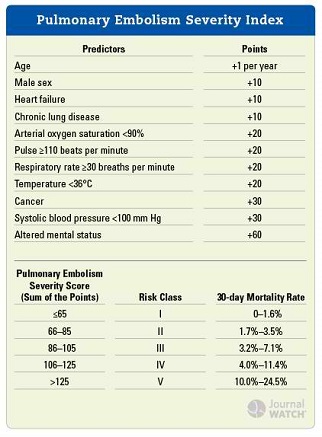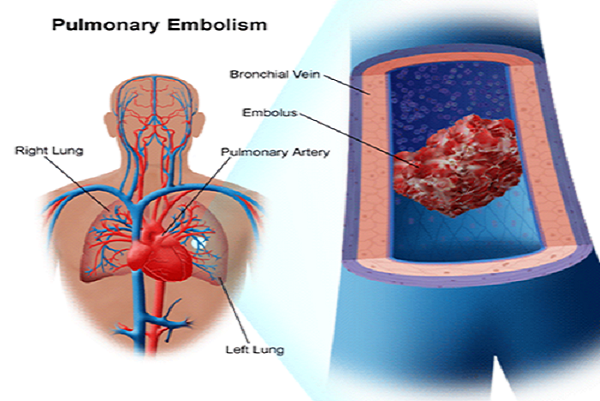Blood clotting is a helpful normal body process when it occurs for the right reason at the right place. The presence of blood clots is beneficial only when it forms on the surface of damaged blood vessels in response to injury, with the aim to stop bleeding.
What Causes Blood Clots in Lungs
There are several factors for consideration to identify what causes blood clots in the lung. Generally, it is associated with increased number of blood platelets in the body, a condition known as thrombocytosis, that results to abnormal blood clotting in the blood vessels and body organs.
The medical disorder is dangerous knowing that it can lead to severe body dysfunctions such as stroke, heart attack, and other cardiovascular disorders.
The Dangers of Blood Clot in Lungs
The presence of a blood clot in the lung may identify with the condition known as pulmonary embolism, which is described as arterial blockage in the lungs that leads to inhibition of the normal functioning of the lungs.
In general, a blood clot in a particular location is possible to dislodge and move to another organ or location in the body. This is one of the reasons it can cause blockage in pulmonary arteries which are responsible in the supply of blood to the lungs.
The situation can easily result to damage of the lungs due to restricted flow of blood. Eventually, it will cause a decrease in the level of oxygen in the circulating blood.
The harm will likely extend damage to the other organs of the body that depend on the oxygen that comes from the lungs. In fact, multiple blood clots in lungs can result to fatal situations like death.
Factors That Influence Blood Clot in Lung Survival Rate

Emergency treatment will be needed to avoid potentially fatal effects, along with the employment of preventive measures against permanent damage of the lungs.
The following are common blood clot in lung symptoms.
Symptoms of Blood Clot in Lung
1. Shortness of breath
This is the most common symptom of pulmonary embolism. The lack of breath can be sudden or gradual. It happens due to blockage of the arteries that are supposed to move deoxygenated blood to the lungs for oxygenation.
Exchange of gases takes place in the lungs and therefore, lack of sufficient supply of oxygen from the lungs will starve all the organs of the body of fresh supply of oxygen, resulting to the development of intense tightening in the chest.
It is important to seek immediate medical attention when shortness of breath is experienced.

2. Cough
Cough is another among likely symptoms of blood clot in lungs. The cough starts suddenly without any prior indication. It can also become persistent for quite a long period of time.
Patients experiencing the coughing episodes may first suspect to be suffering from tuberculosis (TB).
Similar to TB, the cough is characterized with the display of traces of bloody sputum; and some amounts of blood may be visible in the cough. This is a known sign of multiple blood clots in lungs.
3. Chest pain
An individual suffering from blood clot in lung is likely to experience chest pain under the breastbone or in most cases, on one side of the chest.
The pain is usually sharp and stabbing. It can be extremely burning in some situations, with an aching, dull, and heavy sensation.
Also, a deep breath worsens the situation, as well as coughing, stooping, bending, or even eating. Sometimes, the pain may last for quite a while.

4. Rapid breathing
Due to shortness of breath, the body may try to compensate for the lack of oxygen by resulting to rapid breathing. This is meant to supply the blood with sufficient oxygen as required by the body for many functional purposes.
Rapid breathing can be sudden, happening multiple times, depending on the extent of the damage caused by the blood clot in the lung.
The rapid breathing will definitely stop but it should not make the individual assume that the problem is solved. Quick medical attention is necessary in order to avoid any further possible life-threatening effects.
5. Rapid heart rate
These are signs of blood clot in lungs closely similar with rapid breathing. The heart is responsible for the pumping of blood that carries oxygen to all parts of the body.
Since the lungs have no access to sufficient oxygen, a signal to the heart will demand a faster heart rate to try and cover for the lack of oxygen.
The size of the clot in the lungs puts the body in a position to the need of applying measures aimed at eradicating the clot. The process makes body organs become overworked leading to an increased heartbeat.
In some cases, increased heart rate arises due to movement of the clot to other vital organs and locations such as the heart and the brain.
6. Rapid changes in body temperature
Blood clotting may result to an increase in body temperature. The temperature can be unstable and extreme, leading to other secondary problems.
The patient may feel very uncomfortable. In some cases, persistent feeling of tingling may occur.
It may be followed by other generalized symptoms such as throbbing and itchiness.
7. Fever
Fever is a common symptom to almost all disorders of the blood. Blood clots in the lungs may only result in mild fever of the patient that can be evidenced with increase in body temperature, shivering, sweating, persistent headaches, low appetite, and general body weaknesses.
Extreme situations of the fever can result to hallucinations and confusion of the patient.
The symptoms come about when the temperature of the body settles at a range of 39.5 to 41.5 degrees Celsius, which is obviously way above the normal body temperature.

8. Fainting and dizziness
Fainting is caused by the lack of enough oxygen supply. The symptom is also associated with blood clot in the lung despite its non-specific nature and may occur when least expected.
Fainting and dizziness are two connected symptoms that befall when the body can no longer deal with the blood clot naturally. The individual may find difficulties in breathing as mentioned previously with all the same reasons, insufficient oxygen.
An observation of dizziness usually happens when the person has been sitting for quite some time and then suddenly stands.
9. Blurred, double, or decreased vision
The ability to see can also be altered when suffering from lung embolism. The problems with vision are symptoms of blood clots in lungs that indicate a failure in the function of relevant organs in the nervous system.
The inability of the lungs to supply sufficient oxygen to body parts has considerably already affected the brain.
In this context, communication and response processes in the brain becomes poor and may result to the visual impairment of the individual.
If not treated in time, the symptom can develop into permanent serious visual problems.

10. Anxiety and Depression
Acute pain of the jaws, patient’s back, and those of the chest can be some signs of a blood clot in the lungs. The pain will sometimes become persistent in causing discomfort and a lot of suffering to the individual.
Headaches as well as irritation may also be accompanying symptoms of the body pains. These conditions can lead to anxiety and depression of the patient.
- READ MORE





I have Varco veins bad in the right leg , got COPD , veins are vary blocked in lung do to copd been having pain in left upper rib area on 1-10 like a 4 short breath could be copd eyes are blurred some what blood presser goes up and down could it be blood clot ? been going off and on for 4 days or so or is it just old age i am 61 and smoke